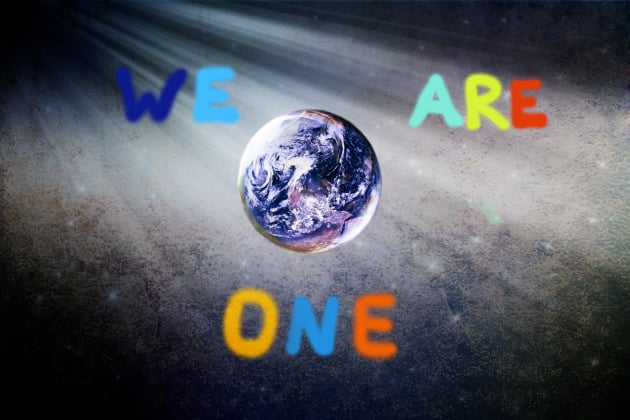The Babel Fish Conundrum: Will We Stop Needing to Learn Languages One Day?
When Arthur Dent from Douglas Adams’ classic The Hitchhiker’s Guide to the Galaxy begins his rip-roaring adventure through space, he’s in serious danger of getting lost in translation at some point in time as he makes his way to different planets and solar systems. Luckily, Dent was endowed with a Babel Fish early on in the tale, hence helping him to avoid all sorts of language and culture pitfalls. In Adam’s world, the Babel Fish is a small fish which is inserted into your ear and allows you to instantaneously understand every language in the galaxy. Sounds nifty, right? Our planet currently has over 6,000 spoken languages making a Babel Fish sound like a useful thing even now. But having such a device is becoming less and less wishful thinking these days and more of a reality with gizmos like Sigmo (a smart phone translator which translates in real-time) or even the Google Sheet function which will proved real-time translation for video and voice calls.  An increasingly globalized world also means that more and more people are learning key languages like English and Mandarin in order to be able to communicate and do business with economic powerhouses such as the U.S. and China. And so, as we progress to speaking more languages in common all the while continuing to develop translation devices which will make language barriers obsolete, will the day come when learning foreign languages is no longer necessary? Check out the facts and decide for yourself! Globally Speaking Mandarin is currently the most spoken language on the globe, often prompting people to refer to it as the language of the future. “Learn Mandarin,” they’ll tell you, “because we’ll all be speaking it one day.” But in reality how possible is it for the entire globe to adopt or adhere to a single tongue, whether it be English, French, Mandarin, or Spanish? As it stands, English is undoubtedly the closest the world has to a global language. Although outnumbered by Spanish, Mandarin, and Hindi in terms of native speakers, English is number one when it comes to global use. Experts estimate that over 1 billion people around the globe use English in some way while Mandarin and Hindi largely find themselves confined to specific countries such as China and India. History Replayed It may seem, then, that the English language’s role as the dominant and soon-to-be global language is assured. However, if history has anything to teach us, this may not be the case. Latin, now a dead language, was once seen in the Middle Ages as the permanent language for culture and science. French experienced a similar peak in the 18th century before being shoved to the background in the wake of Spanish and English dominance. You’re probably starting to notice a trend here, and that is that power and language go hand in hand. Herein lies the main barrier to creating a single world-wide tongue: power is constantly fluctuating. English rose to prominence along with American and British power just as Mandarin is now rising as China gains traction day by day as the world’s next livewire. Experts agree that power will continue to shift in the future just as global language loyalty will change according to which nations are rising to the forefront as cultural, technical, and economic beacons. It really is anyone’s game.
An increasingly globalized world also means that more and more people are learning key languages like English and Mandarin in order to be able to communicate and do business with economic powerhouses such as the U.S. and China. And so, as we progress to speaking more languages in common all the while continuing to develop translation devices which will make language barriers obsolete, will the day come when learning foreign languages is no longer necessary? Check out the facts and decide for yourself! Globally Speaking Mandarin is currently the most spoken language on the globe, often prompting people to refer to it as the language of the future. “Learn Mandarin,” they’ll tell you, “because we’ll all be speaking it one day.” But in reality how possible is it for the entire globe to adopt or adhere to a single tongue, whether it be English, French, Mandarin, or Spanish? As it stands, English is undoubtedly the closest the world has to a global language. Although outnumbered by Spanish, Mandarin, and Hindi in terms of native speakers, English is number one when it comes to global use. Experts estimate that over 1 billion people around the globe use English in some way while Mandarin and Hindi largely find themselves confined to specific countries such as China and India. History Replayed It may seem, then, that the English language’s role as the dominant and soon-to-be global language is assured. However, if history has anything to teach us, this may not be the case. Latin, now a dead language, was once seen in the Middle Ages as the permanent language for culture and science. French experienced a similar peak in the 18th century before being shoved to the background in the wake of Spanish and English dominance. You’re probably starting to notice a trend here, and that is that power and language go hand in hand. Herein lies the main barrier to creating a single world-wide tongue: power is constantly fluctuating. English rose to prominence along with American and British power just as Mandarin is now rising as China gains traction day by day as the world’s next livewire. Experts agree that power will continue to shift in the future just as global language loyalty will change according to which nations are rising to the forefront as cultural, technical, and economic beacons. It really is anyone’s game.  Culture Loss There is a reason why Gandhi once said: “To give millions a knowledge of English is to enslave them.” Regardless of how beneficial knowing a certain language may be, many cultures don’t take kindly to having a foreign tongue forced upon them. In fact, the greatest fears which persists when it comes to using a global language is that minority languages and cultures will disappear or that the world itself will become one uniform and boring blob. Certain powerful languages also carry with them negative connotations. Kenya, for example, has rejected the most dominant language in the world, English, as an official tongue because it is considered the language of British oppression. At the same time, many nations look at giving into outside languages as a diminishing of their own cultural importance, and experts have revealed that unique cultural knowledge, speech forms, and oral traditions are lost every time a language dies. It is the sobering reality of a globalized world. Simply put, perhaps the time is coming when all languages but a select few will have died out. Perhaps one day technology and globalization will mean that future generations will no longer have to concern themselves with learning new tongues. However, in our modern age, learning new languages is still a vital part of living in our multicultural world. This doesn’t mean it needs to be a chore you have to complete simply because we aren’t advanced enough to communicate in one language. Technology and globalization have also made learning a new language a stress-free process as compared to a decade ago. Signing up for excellent language classes is easy and online tools and games are perfect for keeping your skills fresh! Focus on the importance of language learning in the here and now and prepare yourself for a world which is still chock full of diverse and multicultural nations of various customs and tongues!
Culture Loss There is a reason why Gandhi once said: “To give millions a knowledge of English is to enslave them.” Regardless of how beneficial knowing a certain language may be, many cultures don’t take kindly to having a foreign tongue forced upon them. In fact, the greatest fears which persists when it comes to using a global language is that minority languages and cultures will disappear or that the world itself will become one uniform and boring blob. Certain powerful languages also carry with them negative connotations. Kenya, for example, has rejected the most dominant language in the world, English, as an official tongue because it is considered the language of British oppression. At the same time, many nations look at giving into outside languages as a diminishing of their own cultural importance, and experts have revealed that unique cultural knowledge, speech forms, and oral traditions are lost every time a language dies. It is the sobering reality of a globalized world. Simply put, perhaps the time is coming when all languages but a select few will have died out. Perhaps one day technology and globalization will mean that future generations will no longer have to concern themselves with learning new tongues. However, in our modern age, learning new languages is still a vital part of living in our multicultural world. This doesn’t mean it needs to be a chore you have to complete simply because we aren’t advanced enough to communicate in one language. Technology and globalization have also made learning a new language a stress-free process as compared to a decade ago. Signing up for excellent language classes is easy and online tools and games are perfect for keeping your skills fresh! Focus on the importance of language learning in the here and now and prepare yourself for a world which is still chock full of diverse and multicultural nations of various customs and tongues!
